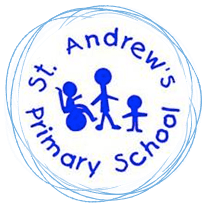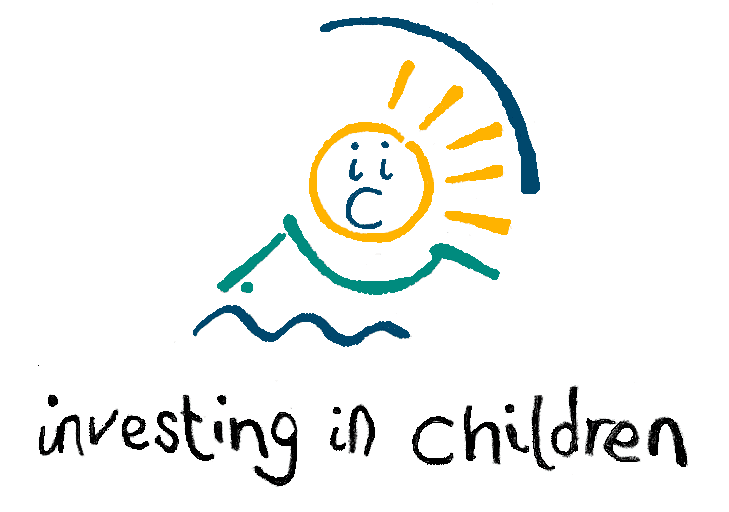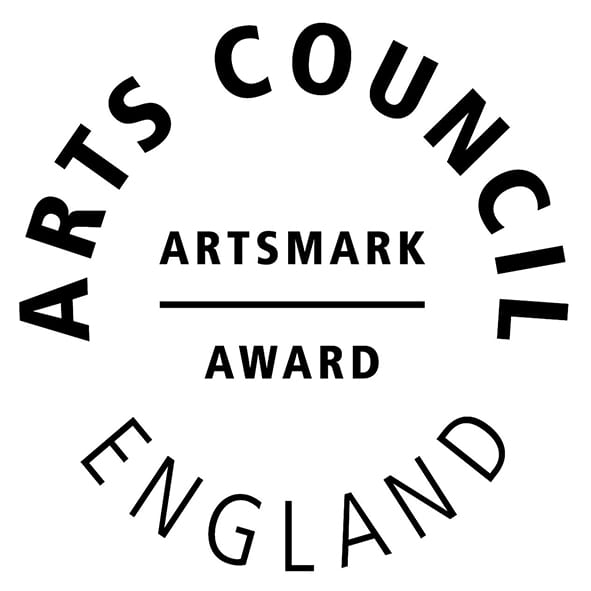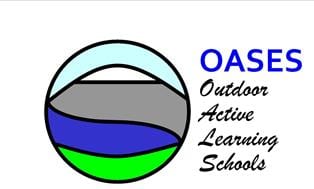Reading
Reading is a high priority area of our English curriculum at St. Andrew’s Primary School. Reading is a fundamental skill, used to stimulate children’s imaginations and learn to acquire a love for books. A centralised aspect of our Book-Led Curriculum across the school is to ensure reading influences the thoughts, feelings and emotions of all our learners.
From Year 1, class texts are selected from the 5 Plagues of a Developing Reader, which include: Archaic Language, Non-Linear Time Sequences, Narratively Complex Books, Figurative/Symbolic Text Texts and Resistant Texts. The idea is that in each year, a child will cover all 5 plagues of reading so that, by the time they reach year 6 and beyond, they have a good understanding of all of them and are able to access the more complex books, expected of them in secondary schools. The 5 plagues of reading only considers narratives and poems, so we ensure children are exposed to a good balance of topic appropriate non-fiction books to help further develop children’s background knowledge of the subject they are studying.
Reading sessions are taught daily where children are given the opportunity to develop their fluency, vocabulary, inference and comprehension skills. During these sessions, children are given the opportunity to read independently, with a partner or teacher. If children are working below their chronological reading age, targeted intervention and support is put in place. Children in all classes still have access to story time and have a class book for a sustained period: this ensures that reading is correctly modelled to children as well as giving them the opportunity to enjoy being read to.
In EYFS and KS1, children read the appropriate level Read, Write Inc books to accurately match the phonics sounds that they are learning. The children take the Read, Write Inc Phonics Book Bag Books home to ensure that they match the sounds that they are learning in class.
Once children are secure with their phonics sounds and they can accurately blend the sounds and read fluently, we use the Oxford Reading tree scheme to support our children in developing their reading skills. The books are banded according to their level of difficulty, providing children with a challenging reading experience, which also allows them to use their developing phonic and whole word knowledge to read independently. The Oxford Reading tree scheme comprises of a mixture of Fiction, Non-fiction and Traditional Tales, which allows children to experience a variety of texts. Oxford Reading Tree books include series such as Floppy’s Phonics, Biff, Chip and Kipper, Traditional Tales and Songbirds Phonics. We also have a range of Project X books for the children in KS2. Once children in KS2 can read accurately and fluently, they select an independent reading book from the library.
Reading for Pleasure
At St. Andrew’s Primary School, we encourage a reading for pleasure ethos through daily reading sessions, class story time, library time, outdoor reading, reading challenges, author visits and reading events, such as World Book Day. Children have independent access to a wide variety of high-quality texts in book corners and the school library. It is these tools and opportunities that we believe give our children the necessary skills to become thoughtful and confident readers for life.
Teachers nurture a love of books by introducing books with enthusiasm and enjoyment, promoting a sense of wonder and expectation as the book is explored. Teachers use quality texts in all aspects of their teaching across the curriculum and provide opportunities that extend and enrich the children’s learning.
Each week, we spend time enjoying reading for pleasure in our library during a dedicated reading for pleasure time. When we read for pleasure, children can choose the books they wish to read and enjoy. They can choose to share a book with a peer, choose to read topic books related to our wider curriculum or listen to an adult reading aloud to them.
Additionally, every day, pupils end the school day by sharing a story in their classrooms; adults read a class book aloud to the children to further promote a love for reading into every school day.
Home Reading
Reading at home is an essential part of learning to read. Each child has a reading record, which is appropriate for their age. Children are encouraged to read regularly at home and discuss texts with parents. We carefully monitor the children’s reading at home and encourage parents to be fully active and engaged with us in this in order to support their child’s ongoing development.
1:1 Reading
In EYFS, KS1 and KS2 all children will read with an adult at least once a week. Children who need extra support with their reading will read 1:1 in a targeted reading intervention twice a week. We also work closely with Beanstalk volunteer readers, who support and promote the love of reading with identified children. All children are encouraged to develop a passion for reading and opportunities are found to celebrate and share reading, whenever possible.
Language Acquisition & Vocabulary Development
We endeavour to ensure we provide our pupils with a ‘language rich’ environment; we do this by ensuring we have a wide range of texts displayed around the school, to correlate with our wider curriculum. We hold book fairs to raise the profile of reading and to ensure we share the importance of reading with our parents, carers and wider community. Within our classrooms, we explore ambitious vocabulary across the wider curriculum to ensure we acquire an understanding of tricky language across the wider curriculum via the use of working walls.
At St. Andrew’s Primary School, we aim to share our vision of high aspirations for all our pupils through our high expectations across the wider curriculum; by setting these high expectations, our pupils are aware of the standards we expect in all lessons and learning opportunities.
Phonics
At St. Andrew’s Primary school, we use Read Write Inc Phonics (RWI). Read Write Inc (RWI) is a phonics based programme which helps children learn to read, whilst also developing a wide range of vocabulary and encouraging a love of stories. It was developed by Ruth Miskin and more information on this can be found at www.ruthmiskinliteracy.com.
Phonics is taught daily in Early Years and Key Stage One. We use a flexible group approach to the organisation of phonics teaching and ensure the provision of phonics is tailored to suit individual needs.
Children learn to split words into sounds (segmenting) and put sounds together to make words (blending). In the Foundation Stage and KS1 Phonics is taught daily and children in KS2 who need extra support are taught in targeted small intervention groups.
Children begin to learn the sounds of individual letters in nursery. In reception, children learn about individual sounds at the beginning and end of words and learn about sounds in the middle of words. This learning continues in Year 1 and 2. Every day the children have a structured phonics lesson, which helps them to understand the links between reading and writing. Children learn words which are ‘tricky’ and which are not phonetically regular.








